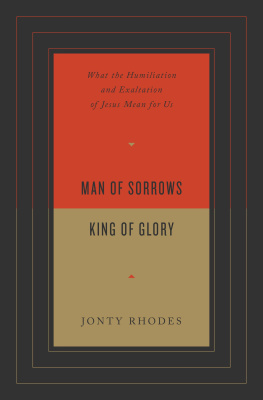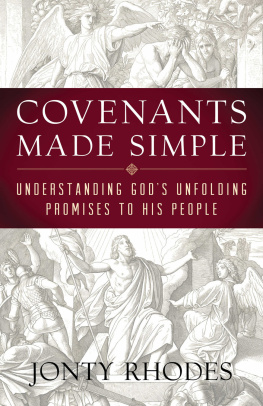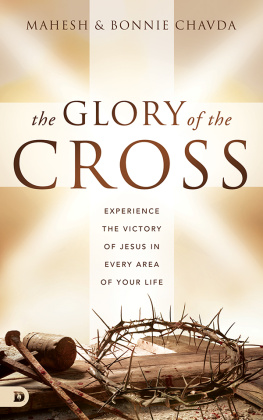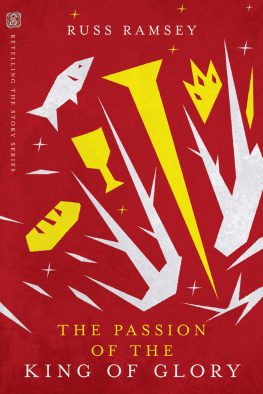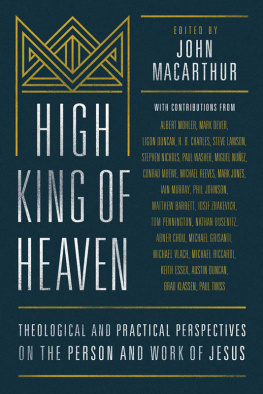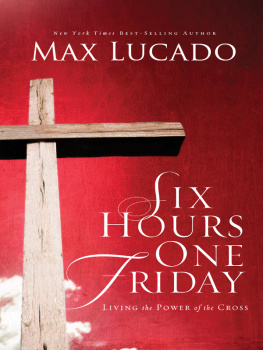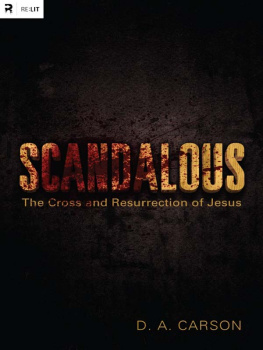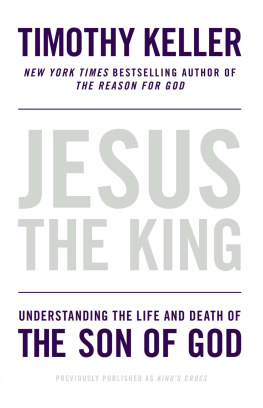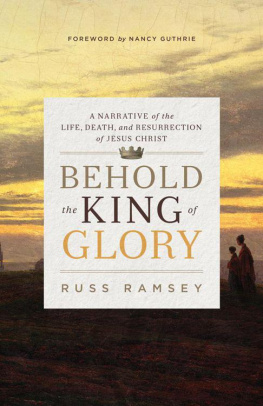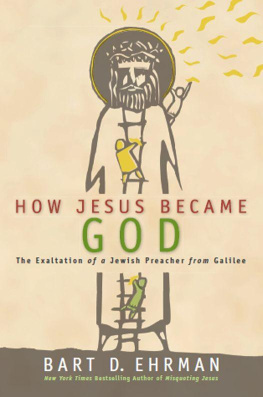Table of Contents
Landmarks
Too often, Christians think narrowly about Jesus s saving work, as though saying Christ died for our sins exhausts the gospel. Jonty Rhodes gives us a more full-orbed view of the work of Christ, taking us back to classical formulations of Christs threefold office (prophet, priest, and king) and twofold state (humiliation and exaltation). Man of Sorrows, King of Glory is theologically rich while remaining accessible and devotional. This edifying book will help Christians understand Jesus more fully and love him more deeply.
Gavin Ortlund, Senior Pastor, First Baptist Church of Ojai; author, Finding the Right Hills to Die On
As soon as we begin to speak of Jesus , were doing the work of theology. This book provides sound teaching for that task, exploring the person and work of Christ with a fresh sense of wonder. Man of Sorrows, King of Glory is rich without being dense, theological without being stuffy, and corrective without being combative.
Nancy Guthrie, Bible teacher; author, Even Better than Eden
This book is full of biblical insight and draws on a rich stock of historic Reformed theologians. In Man of Sorrows, King of Glory , we move from Adam to the new creation and see how in Christs exaltation he becomes the human king the world has been awaiting. Jonty Rhodes shows that the death and resurrection of Jesus have so much more importance for Christians than we usually recognize.
Simon Gathercole, Professor of New Testament and Early Christianity, University of Cambridge
Pastor Jonty Rhodess words comfort us that our dear Savior, Jesus Christ, is both immanently sympathetic and transcendently sovereign. This book helps inform us how understanding Christs threefold office as our prophet who teaches us, our priest who mediates for us, and our king who rules over us makes a daily difference.
Karen Hodge, Coordinator of CDM Womens Ministries, Presbyterian Church in America; coauthor, Transformed
Some people think that being Reformed means believing in the five solas of the Reformation or the five points of Calvinism. In his book Man of Sorrows, King of Glory , Jonty Rhodes shows us that the Reformed faith is deeper and broader, as he invites us to look at the person and work of Christ from the perspective of his twofold state (humiliation and exaltation) and threefold office (prophet, priest, and king) set within the drama of the relationship between Father and Son. This book helps us understand the gospel through new eyes as we see the rich structures that undergird Reformed theology. I hope all Christian ministers will encourage every church member to read it!
Jonny Gibson, Associate Professor of Old Testament, Westminster Theological Seminary
Rare are the books that make forgotten theology accessible. Rarer still are those that do so while retaining their sense of wonder. In Man of Sorrows, King of Glory , we dive deep into ancient truths concerning the person and work of the Lord Jesus Christ. Combining biblical insight with devotional application, this book is one to read slowly, prayerfully, and joyfully. And as we do so, we cant fail to find ourselves in awe and love and praise at the humiliation and exaltation of so great a Savior.
Dave Gobbett, Lead Minister, Highfields Church, Cardiff, Wales; Trustee, World Alive
In this clear and engaging study of, and meditation on, our Lords threefold office, Jonty Rhodes reaches beyond the academic community to hold out great encouragement to the contemporary church. The theological significance and pastoral relevance of understanding Christ as our prophet, priest, and king is explained and applied in this book in a way that stirs the heart to worship. Indeed, the emphasis on the ongoing nature of the Lords work in his church today is a particular highlight of the book that will refresh how many of us think about the Christian life.
Reuben Hunter, Lead Pastor, Trinity West Church, London
The Humiliation of Christ Our Prophet
Jesus came to be our Savior. But he came to be our Teacher too. That was the opening line of the (otherwise excellent) childrens devotional we read as a family this morning. Perhaps Im being picky, but it seemed to betray a tendency many of us have to downplay the role Jesus s teaching plays in our salvation. Rightly were concerned not to imply that Jesus was just another religious guru from the ancient world. Rightly were determined not to present the gospel as if it were a matter of obeying his rules and earning our way to paradise. But until we see Jesus s prophetic work as integral to our salvation, just as much as his priestly (or indeed kingly) work, well miss the richness of that salvation. He is not Teacher as well as Savior: he is our Savior as Teacher.
Jesus referred to himself as a prophet. In Luke 13:33, he announces that he must go to Jerusalem, for it cannot be that a prophet should perish away from Jerusalem. Speaking of his preaching ministry, he claims that the Spirit... has anointed me / to proclaim good news to the poor (Luke 4:18): notice again the anointing, or Christing, language. The people of Israel had been expecting a great prophet ever since the days of Moses (Deut. 18:1518). As Peter preaches from the steps of the temple, he links this prophecy directly to Jesus (Acts 3:2223). Jesus is undoubtedly our prophet. But how does his prophetic work contribute to our salvation?
The Great Gulf
It would be tempting to dive in here and start talking about Jesus s teaching, but we need to take a step further back. As weve already seen, eternal life is all about knowing God: This is eternal life, that they know you, the only true God, and Jesus Christ whom you have sent (John 17:3). But before we can know God, two huge problems need solving: our sin and our smallness. Well return to sin later, but for now lets focus on the problem of our sizeparticularly the size of our tiny human minds. God in himself is infinite and therefore unfathomable; we are far too small to know and understand him. Just look at some of the ways he describes himself:
Great is our Lord, and abundant in power;
his understanding is beyond measure. (Ps. 147:5)
Oh, the depth of the riches and wisdom and knowledge of God! How unsearchable are his judgments and how inscrutable his ways! (Rom. 11:33)
Can you find out the deep things of God?
Can you find out the limit of the Almighty?
It is higher than heavenwhat can you do?
Deeper than Sheolwhat can you know?
Its measure is longer than the earth
and broader than the sea. (Job 11:79 )
Even from this handful of verses, we can see the point: God is far too great for us to comprehend. He is the Creator, and we are but creatures. We are no more capable of understanding the nature and essence of God than the ant that just scuttled across the windowsill has of understanding me. Indeed, the gap between the ant and me is virtually nothing compared to the gap between God and me. As Job says, Behold, he passes by me, and I see him not; / he moves on, but I do not perceive him (Job 9:11). Trying to get finite human beings to comprehend, to fully grasp, the nature of God is like trying to pour the Pacific Ocean into an eggcup.
Christ the Bridge
And so we need a mediator. In Jesus Christ, the God-man, we have the perfect mediator, the one who can perfectly reveal God to us. John Owen says that we can think of Christ as image in two ways. First, as the divine Son, he is the first chapter of his Gospel. It is fitting that the Son, who is eternally the exact image of the Father, is the one who takes flesh to reveal God to us. Of course, there are some things true of Jesus as man that arent true of God: Jesus gets tired, needs to eat, can die. We cant reason from this that God in himself gets tired, needs to eat, or can die. But Christ in his human nature is a perfect revelation of God on a human level. This is how we can have certainty that Gods character is the character of Christ. We need not fear that there is another hidden God, totally different from Jesus , lacking his grace and mercy.

